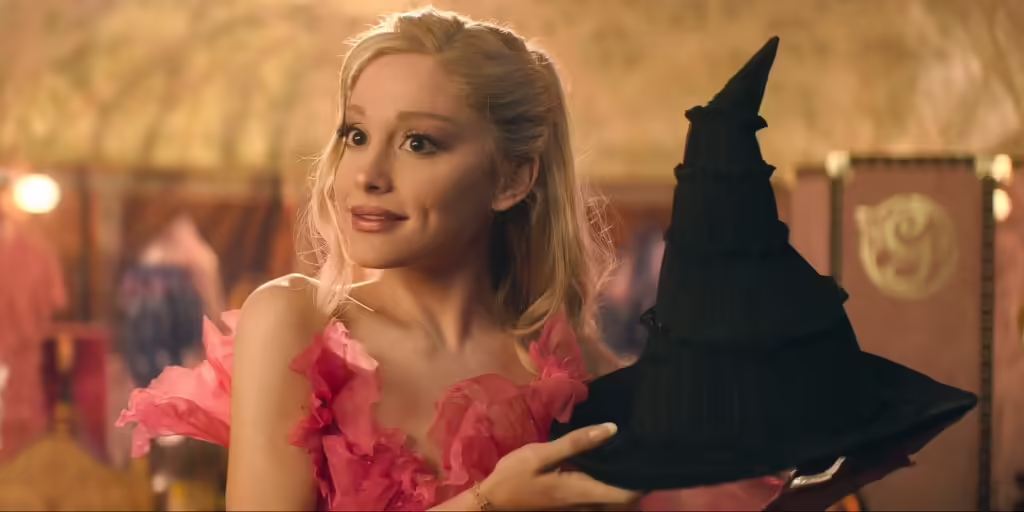The hit musical Wicked—and its long-awaited film adaptation—offers profound lessons on
identity, rejection, and standing up for what’s right. Beyond its dazzling spectacle, the story is
deeply relatable for anyone struggling to find belonging, navigate systemic oppression, or
reconcile the tension between personal values and societal expectations.
In an era where authoritarianism and exclusionary ideologies threaten our collective values,
Wicked speaks to the heart of what it means to be othered, to resist conformity, and to reclaim
one’s power. The story invites us to explore not just Oz’s shimmering facade but the shadows
that lurk beneath—both in its world and in ourselves.
Let’s journey into the psychological and cultural insights Wicked offers, particularly as it echoes
Carl Jung’s teachings on the shadow self and the quest for individuation.
It’s Not Easy Being Green: The Shadow of Otherness
At its core, Wicked is the origin story of Elphaba, the so-called Wicked Witch of the West. Born
with green skin, a visible marker of her “otherness,” Elphaba’s greatest wish is to belong. She
believes that if her skin were a “normal” color, her suffering—ostracization, her family’s
dysfunction, and societal rejection—would vanish.
At its heart, Wicked is the origin story of Elphaba, the so-called Wicked Witch of the West.
Born with green skin, she faces rejection at every turn, believing this difference is the reason
she’s ostracized. Yet, as Carl Jung’s psychology teaches, our deepest struggles often reflect
unacknowledged parts of ourselves—our shadow. Elphaba’s journey of self-acceptance
involves rejecting the narratives imposed upon her and embracing her innate power, even when
it alienates her from the world around her.
Elphaba’s story reflects the experience of many who’ve faced rejection or systemic inequity.
Her transformation reminds us that healing and empowerment often require confronting our
fears, owning our unique strengths, and refusing to let external judgments define us.
But Jung might suggest otherwise. The green skin Elphaba despises is a projection of her
shadow: the unacknowledged aspects of herself that society has deemed unacceptable. When
Galinda, her popular foil, remarks that Elphaba “pretends not to care what others think,” it’s a
reminder of how much Elphaba has internalized society’s gaze. Her desire to change her skin
reflects her attempt to align with external expectations rather than embracing her own wholeness.
Elphaba’s shadow is further complicated by her immense magical power, a gift that sets her
apart even more. For years, she suppresses this potential, associating it with the very traits that
make her a “freak.” But when the manipulative Wizard tempts her with the promise of
belonging—offering to “fix” her skin color—Elphaba faces a pivotal moment. Rather than
succumbing, she chooses to embrace her shadow, rejecting the Wizard’s lies and claiming her
power.
This act mirrors Jung’s concept of individuation, where one integrates the shadow self to
become whole. By rejecting the Wizard’s definition of normalcy, Elphaba not only confronts the
external forces oppressing her but also heals her relationship with herself. Her defiance
becomes a symbol of liberation, not just for herself but for all marginalized beings in Oz.
Galinda and the Mask of Allyship

In contrast to Elphaba’s journey of self-discovery, Galinda (later Glinda, the Good Witch)
embodies a different archetypal struggle: the Queen Bee grappling with privilege and
performative allyship. Initially, Galinda sees Elphaba as a project, someone to “fix” to reinforce
her own social standing. Her attempts to help Elphaba stem not from empathy but from a
desire to solidify her position as Oz’s golden girl.
Jungian psychology would frame Galinda’s behavior as an encounter with the persona, the
mask one wears to navigate the world. Her charm, beauty, and social dominance are carefully
constructed aspects of her identity, designed to win approval. Yet, as she befriends Elphaba,
cracks in this persona begin to show. Galinda’s initial inability to see Elphaba as a whole
person—distinct from her own desires and worldview—highlights the limits of her empathy.
This dynamic peaks during the song “Popular,” where Galinda insists on remaking Elphaba in
her image, symbolizing the shallow activism often seen in privileged spaces. Her efforts,
though well-meaning, are self-serving, focusing on how Elphaba’s transformation benefits
Galinda’s narrative.
The turning point comes when Elphaba challenges the Wizard, and Galinda faces a choice: to
align with power or stand for justice. Her hesitation reveals how privilege can cloud moral
clarity. Though she eventually grows into her role as Glinda the Good, her journey underscores
the difficulty of transcending privilege to see and fight for systemic change.
Elphaba’s confrontation with the Wizard exposes Oz’s authoritarian underbelly. His oppression
of talking animals, framed as a unifying force for Ozians, echoes the psychological mechanism
of scapegoating—projecting one’s fears onto an external group to maintain control. The
Wizard’s actions highlight Jung’s warning about the dangers of collective shadows: when
societies fail to confront their inner darkness, they risk unleashing it on marginalized
communities.
Elphaba’s awakening—her realization that “there’s nothing wrong with her”—is a transformative
moment. By integrating her shadow and rejecting the Wizard’s authority, she reclaims her
agency. Her decision to fight for justice, even at great personal cost, reflects the courage
required to live authentically in a world that demands conformity.
For audiences grappling with their own disillusionment—whether with institutions, leaders, or
societal norms—Elphaba’s journey offers a roadmap. Her story reminds us that true power lies
not in assimilation but in the radical act of self-acceptance and the willingness to challenge
oppressive systems.
Conclusion: The Path to Wholeness

Wicked resonates deeply in a time when many feel disoriented by the failings of leaders and
systems we once trusted. It’s a story of individuation, as Elphaba and even Galinda grapple with
their shadows and personas to find their true selves. Like Elphaba, many of us long to belong,
yet feel trapped by societal expectations or internalized shame. The journey to self acceptance
begins with recognizing the ways we’ve been shaped by external narratives and learning to
reclaim our power.
Jung taught that the path to wholeness requires us to confront and integrate the parts of
ourselves we fear or reject. In Wicked, this process is writ large, offering a timeless lesson: the
journey toward authenticity and justice begins with the courage to face our shadows, both
personal and collective.
At our counseling practice, we explore these very themes—helping clients process rejection,
challenge oppressive systems, and build authentic relationships. If you’re wrestling with
questions of identity, belonging, or the weight of societal expectations, we’re here to walk
alongside you.
As we navigate our own Oz-like landscapes, may we find inspiration in Elphaba’s defiance and
Galinda’s growth. Together, they remind us that even in the most divided of worlds, the dream
of home—authentic, inclusive, and free—is worth fighting for.




